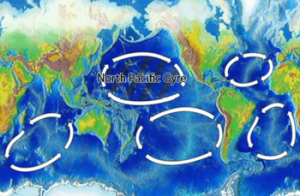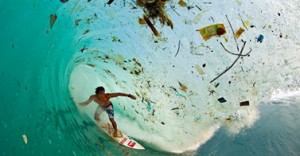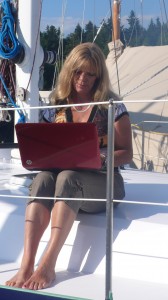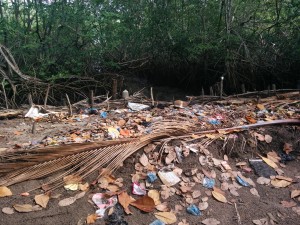The single-most powerful contrast for me as I divide of my life between living half the year in developed regions (mostly Canada) and the other half in developing countries is the extreme behavioral approaches to human waste, and garbage in particular. Canada, and most developed countries are pretty conscientious; yes, we can always improve, but generally most places are reasonably pristine. In contrast, the developing (3rd world) countries that I visit don’t even have garbage cans, not to mention pick-up, landfills, re-cycling or education. Nor do they have the finances, wherewithal, or infrastructure to move forward in sustainability. Sadly, over half of the world population live in these conditions and nothing is being done to improve this enormously serious calamity. Garbage sits on their shorelines waiting for the next high tide or rain storm to be consumed by the ocean’s swells and be taken to the closest mid-ocean “garbage patch” (a.k.a vortex). It’s not their fault. They don’t know any better.
The world’s best and brightest minds are meeting in Paris next month to discuss and take important measures towards Climate Change. Never before has the world seen so many well informed and compassionate sustainability activists collecting together in an attempt to solve our planet’s dire prognosis. It’s admirable that the pendulum is beginning to swing and politicians, international businesses, and agencies are rising to the challenge of taking responsibility for the demise of our planet that is now proven to be caused by human activity. I’m excited insofar as I’ve been on my own one-person rampage since 2008 to save our precious oceans. After personally witnessing the demise of our oceans in the past 30 years I feel compelled to make my little contribution in my writings and speaking events. Yet, I’m just a simple sailor. A sailor who has personally witnessed the demise of our oceans over the past 30 years having traveled to over 100 countries and covered well over 100,000 ocean miles.
I say this in jest because cruising sailors see things that most people don’t. The ocean is our home, and we live in these remote villages for months at a time. We also tend to go slowly and have time to pay attention to our surroundings.
What bothers me is that the people attending the Paris Summit don’t see what I see as a simple sailor: miles and miles of beaches lined with garbage and not a receptacle in sight; filthy water unfit for swimming; red tide for hundreds of miles in a stretch; broken and bleached coral reefs; villages with no sanitation facilities; fishing communities that are unable to feed their families…and so on. It’s really desperate with no sign of prosperity, education or improved infrastructure in sight.
Our First World can be dutifully pro-active, but as long as our 3rd World countries – representing half the world population – are languishing in their garbage and unfit waste sanitation systems, we’re really not moving forward. There are no borders when garbage and human waste enters our oceans.
The Paris Summit needs to seriously address attacking human waste that’s entering our oceans at the source. These communities need garbage receptacles, removal, landfill sites, re-cycling centers and education. It’s not rocket science, and nor is this an expensive proposition. A limited time bounty on the current garbage would have these beaches cleaned in a nano-second. Remember, we too were once “litter bugs.”
Ironically, these developing countries could teach our developed regions about re-cycling and re-use – not to mention that “consumption” doesn’t necessarily make us happy. If smiles and laughter are a measurement of happiness then these developing countries are way ahead of more sophisticated cultures. They’re rocket-stars in terms of fixing things and using every product and material until its final death. I recently noticed an innovative fisherman making floats for his fishing line with old flip flops cut into donut rings. 
I believe that I have a number of meaningful solutions and spend considerable time each day writing to representatives who will be attending the Paris Summit. In addition to being proactive with human waste, multinational corporations that do business in the developing countries should be required to maintain the same sustainability standards as they do in their own First World countries – as leaders, AND to avoid raping the environment with irresponsible practices that would be disallowed at home. I have other ideas, but that’s for another BLOG.
So far no one has responded. I suppose my status as a simple sailor doesn’t warrant being listened to in the same way that most of these developing countries aren’t getting their say at this conference.
If you could see what I see you would be ranting as well!
Currently in El Salvador, Central America.

